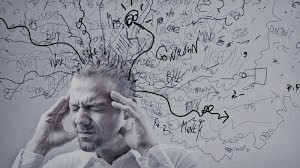Trading is a very captivating, yet difficult skill to master. Perhaps the most important part of trading is possessing an understanding of how human psychology plays a role in the actions of investors. With the advancement of technology – new complex chart patterns and data sets – there are seemingly endless ways to analyze one’s trades. However, these indicators may place additional stress and pressure on investors, and managing one’s emotions is the key to trading success.
There are many psychological theories that can be applied to understand the motivations behind human actions. Below is an examination of some driving theories.
Psychoanalytic Theory
This school of thought was founded by Sigmund Freud and focuses on humans unconscious motivations created by childhood developmental stages. The four stages of development include the oral stage, anal stage, genital stage, and latency stage. Developmental problems that occur within any of these stages may lead to adult behavioral differences later in life. The psychoanalytic theory focuses on human defense mechanisms, which provides a source of understanding of behavior during times of anxiety or discomfort.
Learning Theory
The learning/behavioral theory attempts to discover behavioral problems occurring in human’s lives, and understand what may be causing the issue. This theory can be attributed to the work of I.P. Pavlov, who conducted research on the responses of dogs to bell ticks, to discern if the animals could be conditioned. When Pavlov rang the bell, he would present food to the dog, and eventually, after numerous rounds of conditioning, the dogs would salivate simply from the sound of the bell, even without the food. The concept of the learning paradigm is the following: an occurrence in the environment stimulates an organism, which response to the stimuli. If the occurrence is pleasurable, the result will be reinforcing, whereas if the occurrence is negative, the behavior following is more likely to cease.
With correct conditions in the markets, the idea of the learning theory suggests that a trader would recognize certain chart patterns, act on these patterns, and then continue to approach trades based on how successful they were in the past.
For example, a trader sees a bull flag candlestick pattern and buys after that recognition. Then, the instrument continues to appreciate 80 bps. After executing this trade pattern numerous times with success, the trader will recognize this pattern and continue to do so in the future. The same recognition could be said with conditioning to market mishaps as well, where the trader can recognize situations in which he may lose money, and forgo trading.
Of the different stages of learning theory as applied to trade, recognition of the pattern initially is the most difficult part. However, with careful analysis and correct guidance, traders can condition themselves to correctly react to market movements.
The gambler symptoms
There are, however, negative aspects of the learning theory. Speculation with reinforcement of trade signals could condition a trader to “gamble” their portfolio based on inconclusive ideas. If the initial signal to trade is unclear or confusing, the trader may unthoughtfully make a trade. Or, they may become disgruntled with the outcome of a trade, and their natural fight-or-flight response may be to trade more, triggered by the amygdala. Traders must understand the potential consequences of these psychological responses.
Inherent bias against losing
Traders exhibiting psychological responses may become more focused on their own responses than the profits they make. For example, traders despise losing much more than they enjoy winning. It is an inherent bias against losing, where it has been seen that people react to a loss ⅙ the size of again with the same amount of emotion. Understanding how to control one’s emotion, especially during times of losses, is essential for protecting one’s portfolio.
Confirmation bias
Confirmation bias plays into trading strategies. Often, when the market is irrationally exuberant, traders will follow this group-think blindly, without a clear understanding of what is driving the market. This often leads to large asset bubbles, that more-often-than-not comes crashing down. In order to become a successful trader, one needs to be able to have strong conviction in their trades independent of their own emotional responses and the sentiment of the market.
Summary
Psychology plays a massive role in the success of traders, and traders must not only be able to discern what they are doing but be able to critique their strategies as well regardless of their emotional state.

















